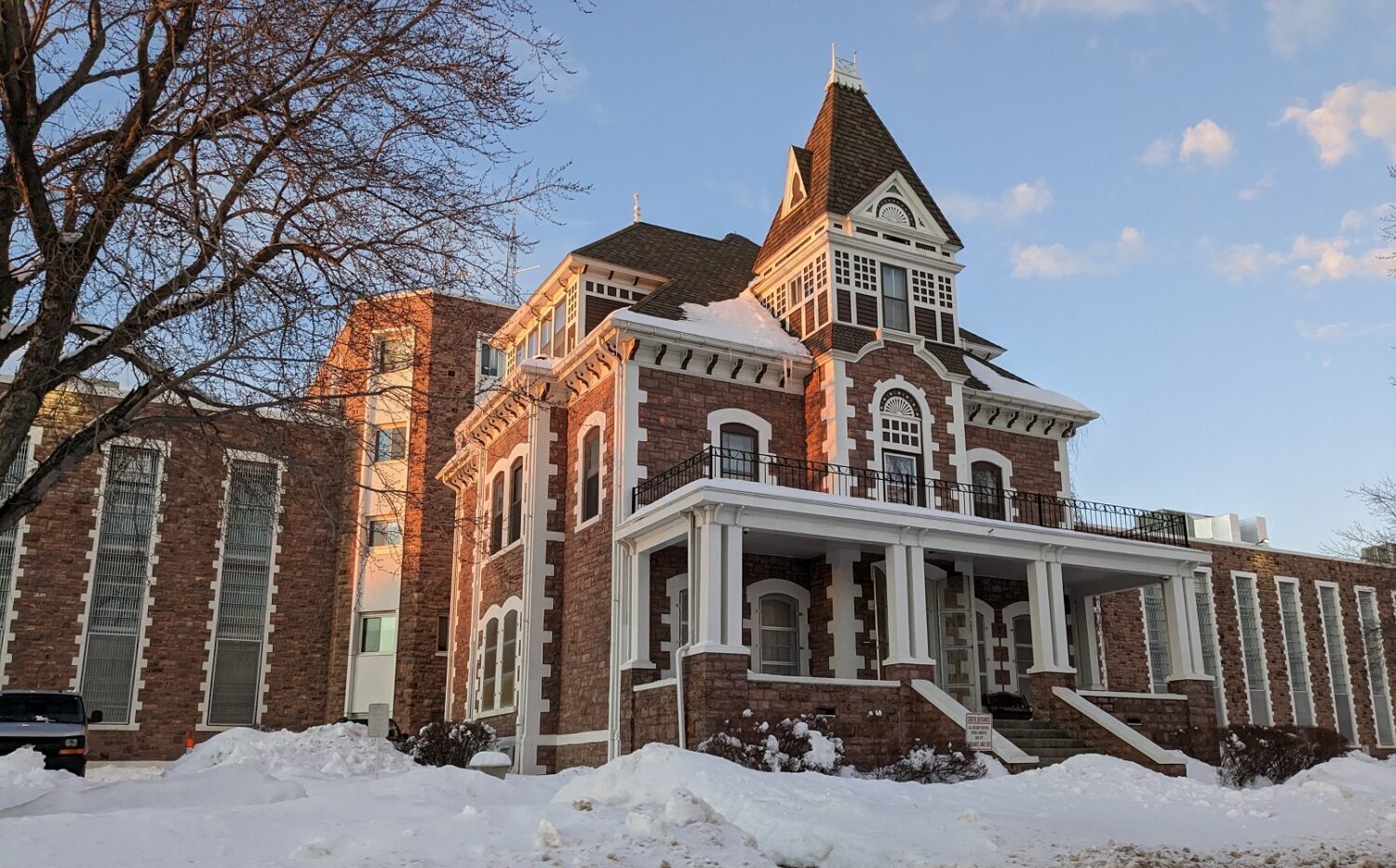
John Hult/South Dakota Searchlight
SIOUX FALLS — Public defenders in South Dakota’s largest city have worked through a tentative compromise with the state Department of Corrections on access to inmate clients.
Defense lawyers sounded the alarm just over a month ago to their Minnehaha County Commission liaison about wait times and inconsistent search policies at the South Dakota State Penitentiary.
Some county-funded lawyers reported waiting an hour or longer for scheduled meetings with clients detained behind the prison walls – while racking up billable hours for their indigent clients.
The issue came to a head over a search policy that some lawyers in Minnehaha County Public Defender Traci Smith’s office refused to sign. It authorized pat-down searches for anyone entering a DOC facility, as well as searches of their vehicles.
The policy was inconsistently applied, Smith said, and defense lawyers are generally loath to consent to searches without probable cause.
Smith and others brought the issue to Commissioner Joe Kippley during a late November meeting of the county’s public defense advisory board. Beyond wait times for in-person meetings with clients and search form concerns, attorneys talked about logging on for video visits, only to see that their client hadn’t been placed before the camera by DOC staff.
A Minnehaha County judge had briefly considered signing an order to transport prison inmates to the county jail for easier client access, Second Judicial Circuit Court Administrator Karl Thoennes confirmed for South Dakota Searchlight, but the judge decided against it.
In the month since the issue was made public, Smith said, lines of communication between her office and the DOC have opened. The agency is open to adjusting its procedures on search consent and to avoiding unnecessary vehicle searches, she said, and there is now a single point of contact with the DOC to address client access issues.
“They were receptive to our concerns about having to sign the ‘consent to search’ form which allows them to search our person, personal property, and vehicle without any reason at all,” Smith told South Dakota Searchlight via email. “Hopefully the conversations will lead to improvements in the screening process and the lengthy wait times for attorneys will be resolved.”
Lawyers visiting clients at the prison will still be subject to searches by metal detector and pat-down searches, Smith said. Her hope is that open communication and improvements to video visit procedures will cut down on the need for in-person visits and the security concerns that might accompany them.
“Our goal is simply to improve our ability to effectively communicate with our clients so that we can protect their rights and resolve their cases efficiently,” Smith said.
The DOC did not reply to requests for comment on the situation in early December, late December and again this month.
Minnehaha County Commissioner Joe Kippley said he’s pleased with the progress so far. He has not raised the issue with the full county commission, he said, because he believes the DOC is making a good faith effort to address defense attorney concerns.
“It’s not fully resolved, but it’s not at the point where people would be talking about having to transfer clients to the county jail,” Kippley said.
